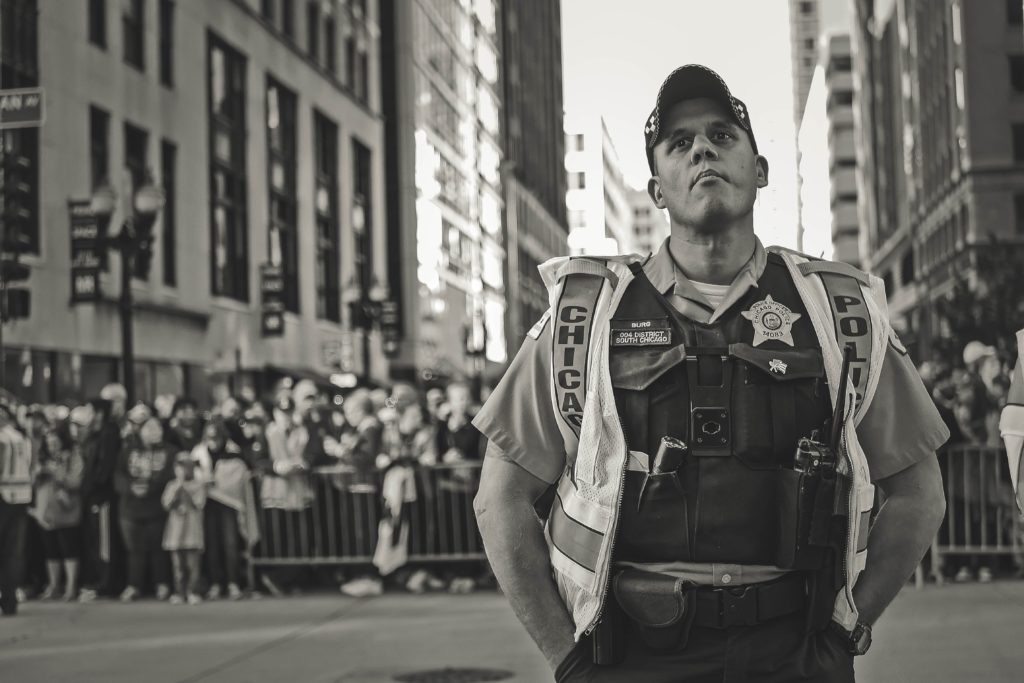The following piece is part of American University Business Law Review’s initiative to publish articles that bring awareness to issues of racial injustice. In order to ensure publication of relevant and informative articles, the American University Business Law Review’s Editorial Board has temporarily waived the business nexus publication requirement for its blog articles.

By: Heather McGuire
“[Qualified immunity] tells officers that they can shoot first and think later, and it tells the public that palpably unreasonable conduct will go unpunished.” – Justice Sonia Sotomayor
Kisela v. Hughes, 138 S. Ct. 1148, 1162 (2018) (Sotomayor, J., dissenting).
Myth: Qualified immunity is enumerated in the U.S. Constitution.
False. Qualified immunity arose out of a 1967 Supreme Court decision.[1] The legal doctrine shields government officials from liability even if they violate an individual’s constitutional rights, as long as the officials do not violate “clearly established” law.[2] While the Supreme Court has expanded the doctrine, it is yet to be enshrined in a federal statute.[3]
Myth: Without qualified immunity, law enforcement officers will be stunted when making discretionary decisions, out of fear of legal liability.
False. This myth assumes that law enforcement officers, when faced with the threat of legal liability, will deviate from resolute lines of conduct and thus be ineffective.[4] This concern would be valid if governmental interests were not already taken into account through various other legal doctrines.[5] For instance, consider an officer tasked with apprehending a felony suspect who, while on pursuit, poses a significant threat of physical harm to the officer or others. The Supreme Court has held that the officers may employ deadly force in that instance to protect themselves or others.[6] Criminal procedure jurisprudence already affords law enforcement a significant margin of error if officers act reasonably.[7]
Following the logic of this myth, law enforcement officers will act timidly to reduce the financial threat of sanctions and litigation. Nevertheless, well-known indemnification practices and litigation dynamics already shield government officials from personal liability in nearly all instances, obviating the need for qualified immunity to give officers “breathing room.”[8]
Not to mention, growing calls to abolish qualified immunity come in response to egregious cases, such as “the shooting of a 10-year-old boy when police pursued an unarmed suspect into a yard where children were playing, to the apparently needless destruction of a house with tear gas grenades when the police were given the house keys to look for a suspect after the homeowner had told police the suspect was not there.”[9] Many opponents hope to see officers engage in more deliberation when on duty.[10]
Myth: Without qualified immunity, police departments and courts will be burdened with increased litigation-related expenses.
False. The existing qualified immunity regime “increases the cost, complexity, and time” required for civil rights litigation.[11] While the abolition of the doctrine may increase the number of cases, the net dollar expense would likely decrease.[12] Moreover, the Federal Rules of Civil Procedure provide ample protection for government officials from frivolous suits and overly burdensome discovery.[13] Abolishing qualified immunity would simply “eliminate a barrier that arbitrarily prevents juries from hearing and deciding cases on their merits.”[14]
Myth: The debate surrounding qualified immunity is partisan.
False. Judge Willett of the Fifth Circuit Court of Appeals maintains that perhaps the most diverse amici ever assembled is in agreement and urges the Supreme Court to abolish or reshape qualified immunity.[15] The slew of relevant briefs filed with the Supreme Court this term represents every stripe of the ideological spectrum — conservative groups such as the Cato Institute, liberal groups such as the American Civil Liberties Union, and advocacy groups that fall in the middle.[16] Further, the Supreme Court’s most conservative justice, Clarence Thomas, and its most liberal, Sonia Sotomayor, have vocalized dissatisfaction and an urge to revisit the doctrine.[17]
[1]See Pierson v. Ray, 386 U.S. 547, 544 (1967) (ruling that there may be immunities from Section 1983 based on common law principles).
[2]Harlow v. Fitzgerald, 457 U.S. 800, 818 (1982).
[3]Noah Feldman, Qualified Immunity Suggests Police Are Above the Law, Bloomberg (June 9, 2020), https://www.bloomberg.com/opinion/articles/2020-06-09/qualified-immunity-suggests-police-are-above-the-law?srnd=opinion.
[4]David Rudovsky, The Qualified Immunity Doctrine in the Supreme Court: Judicial Activism and the Restriction of Constitutional Rights, 138 Univ. Penn. L. Rev. 23, 77, 78 (1989).
[5]Id.
[6]See id.; Tennessee v. Garner, 471 U.S. 1, 3 (1985) (concluding that deadly force may be used if necessary to prevent the escape of an unarmed suspected felon when the officer had probable cause to believe that the suspect posed a significant threat of physical injury to the officer or others).
[7]Rudovsky, supra note 4.
[8]Joanna Schwartz, The Case Against Qualified Immunity, 93 Notre Dame L. Rev. 1797, 1814, 1815 (2018).
[9]Nina Totenberg, Supreme Court Weights Qualified Immunity for Police Accused of Misconduct, NPR (June 8, 2020), https://www.npr.org/2020/06/08/870165744/supreme-court-weighs-qualified-immunity-for-police-accused-of-misconduct.
[10]See Nick Sibilla, New Bill Would Abolish Qualified Immunity, Make it Easier to Sue Cops Who Violate Civil Rights, Forbes (June 3, 2020), https://www.forbes.com/sites/nicksibilla/2020/06/03/new-bill-would-abolish-qualified-immunity-make-it-easier-to-sue-cops-who-violate-civil-rights/#779d372a6fbc (describing the motives of qualified immunity abolitionists).
[11]Jacob Sullum, The Attorney General’s Overblown Fears About Scrapping Qualified Immunity, Reason (June 8, 2020), https://reason.com/2020/06/08/the-attorney-generals-overblown-fears-about-scrapping-qualified-immunity/.
[12]Id.
[13]See Brief for the Am. Civil Liberties Union as Amici Curiae in Support of Petitioner, Crawford-El v. Britton, 523 U.S. 574 (1997) (No. 96-827) (reviewing judicial discretion power and standing requirements that mitigate against frivolous suits and discovery).
[14]Sibilla, supra note 10.
[15]Isaac Scher, A Controversial Legal Doctrine Protects Cops from Misconduct Lawsuits. Here’s How ‘Qualified Immunity’ Works., Bus. Insider (June 8, 2020), https://www.businessinsider.com/what-is-qualified-immunity-police-accountability-law-2020-6.
[16]See Debra Cassens Weiss, Death of George Floyd Brings Debate On Qualified Immunity for Police Misconduct, ABA Journal (June 2, 2020), https://www.abajournal.com/news/article/death-of-george-floyd-brings-debate-on-qualified-immunity.
[17]Madison Pauly, “Qualified Immunity” Gives Abusive Cops A Free Pass. Will the Supreme Court End It?, Mother Jones (June 5, 2020), https://www.motherjones.com/crime-justice/2020/06/qualified-immunity-police-congress-supreme-court/.

